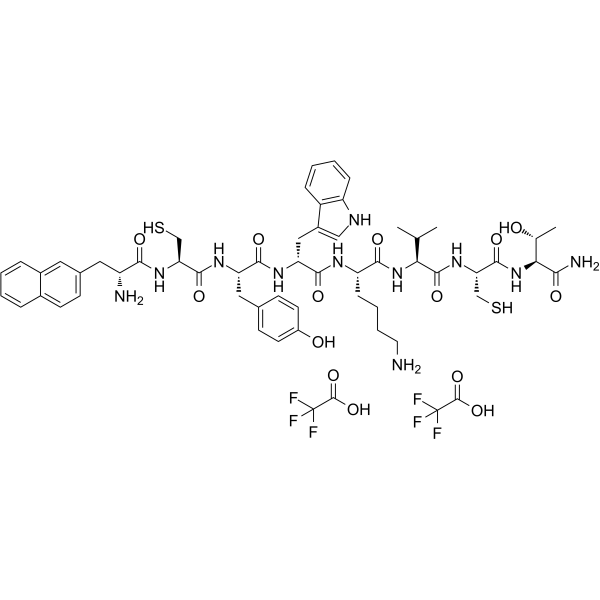2478421-60-0
| Name | Angiopeptin TFA |
|---|
| Description | Angiopeptin TFA, a cyclic octapeptide analogue of somatostatin, a weak sst2/sst5 receptor partial agonist with IC50 values of 0.26 nM and 6.92 nM, respectively. Angiopeptin TFA is a potent inhibitor of growth hormone release and insulin-like growth factor-1 (IGF-1) production. Angiopeptin TFA inhibit adenylate cyclase or stimulate extracellular acidification. Angiopeptin TFA has the potential for coronary atherosclerosis research[1][2]. |
|---|---|
| Related Catalog | |
| Target |
IC50: 0.26 nM (sst2) and 6.92 nM (sst5)[1][2] |
| In Vitro | Angiopeptin (0.1 nM- 10 μM; for 1 h) TFA acts as a partial agonist (pEC50=6.57) with a maximum response of 423% at 3 μM on the release of tritium on CHO hsst2 cells[2]. |
| In Vivo | Angiopeptin (20 and 50μg/kg; i.h.) TFA significantly inhibits neointimal formation[1]. Angiopeptin (20 μg/kg; per day) TFA significantly inhibits coronary artery myointimal proliferation in cardiac allografts by appmximalely 50%[1]. |
| References |
| Molecular Formula | C58H73F6N11O14S2 |
|---|---|
| Molecular Weight | 1326.39 |
